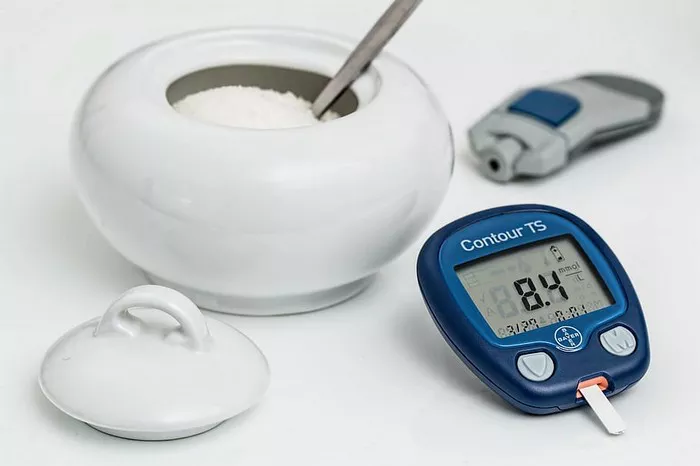ls with diabetes, particularly those who rely on insulin or certain oral medications to manage their condition. The intricate interplay between various factors, including diet, physical activity, medication adherence, and stress, can significantly impact blood glucose levels. Among these factors, stress often emerges as a significant contributor to fluctuations in blood sugar levels. However, the relationship between stress and hypoglycemia is complex and multifaceted, warranting a comprehensive examination to elucidate its mechanisms and implications.
Defining Hypoglycemia:
Before delving into the influence of stress on hypoglycemia, it is essential to understand the concept of hypoglycemia itself. Hypoglycemia occurs when blood glucose levels drop below normal thresholds, typically defined as less than 70 milligrams per deciliter (mg/dL) in adults. Symptoms of hypoglycemia can vary widely in severity and may include palpitations, sweating, trembling, confusion, irritability, and in severe cases, loss of consciousness or seizures. Prompt recognition and management of hypoglycemia are critical to prevent adverse outcomes and ensure optimal diabetes management.
The Stress Response:
Stress is a physiological and psychological response to perceived threats or challenges, triggering a cascade of hormonal and neurological changes aimed at preparing the body to cope with the stressor. The primary mediator of the stress response is the hypothalamic-pituitary-adrenal (HPA) axis, which releases cortisol, often referred to as the “stress hormone,” in response to stress stimuli. Cortisol mobilizes energy reserves, enhances alertness, and suppresses non-essential functions to facilitate the body’s response to stress.
Stress and Glucose Regulation:
The impact of stress on glucose regulation is mediated by complex interactions between the endocrine, autonomic nervous, and immune systems. Cortisol, the key mediator of the stress response, plays a pivotal role in modulating glucose metabolism. On one hand, cortisol promotes gluconeogenesis, the synthesis of glucose from non-carbohydrate sources such as amino acids and glycerol, thereby raising blood sugar levels. This effect is part of the body’s adaptive response to stress, ensuring an adequate supply of glucose to meet the increased energy demands during stressful situations.
Acute vs. Chronic Stress:
It is important to distinguish between acute and chronic stress when evaluating their impact on hypoglycemia. Acute stress, such as a sudden emotional or physical challenge, typically elicits a transient increase in cortisol levels and may temporarily elevate blood glucose levels through gluconeogenesis and glycogenolysis. In individuals with diabetes, this acute stress-induced hyperglycemia may pose a risk of hyperglycemic episodes rather than hypoglycemia, particularly if insulin therapy is insufficient or if there is concurrent insulin resistance.
Conversely, chronic stress, characterized by persistent or recurrent stressors over an extended period, can have profound implications for glucose regulation and diabetes management. Chronic stress is associated with dysregulation of the HPA axis and prolonged elevation of cortisol levels, which may contribute to insulin resistance, impaired glucose tolerance, and increased risk of hypoglycemia. Moreover, chronic stress can disrupt eating patterns, physical activity routines, medication adherence, and self-care behaviors, further exacerbating glycemic control challenges.
Stress and Hypoglycemia Risk in Diabetes:
The relationship between stress and hypoglycemia in diabetes is influenced by various factors, including the type of diabetes, treatment modalities, individual susceptibility, and coping mechanisms. In individuals with type 1 diabetes, who rely on exogenous insulin therapy for glucose control, stress-induced alterations in insulin sensitivity and counterregulatory hormone responses can increase the risk of hypoglycemia. The dynamic nature of insulin dosing, carbohydrate intake, and physical activity in managing type 1 diabetes requires vigilant monitoring and adjustment to mitigate the impact of stress on blood sugar levels.
Similarly, individuals with type 2 diabetes, especially those treated with insulin or sulfonylureas, are susceptible to stress-related hypoglycemia due to impaired insulin secretion, reduced counterregulatory hormone responses, and increased insulin sensitivity. Moreover, comorbidities such as obesity, hypertension, and cardiovascular disease, which are prevalent in individuals with type 2 diabetes, can amplify the physiological stress response and exacerbate glycemic fluctuations. Lifestyle factors, including dietary habits, sleep quality, and physical activity levels, also play a crucial role in modulating the interplay between stress and hypoglycemia risk.
Coping Strategies and Psychosocial Interventions:
Effective management of stress-related hypoglycemia requires a multifaceted approach that addresses both the physiological and psychological aspects of stress. Psychosocial interventions, such as cognitive-behavioral therapy, mindfulness-based stress reduction, and stress management techniques, can empower individuals with diabetes to develop adaptive coping strategies, enhance resilience, and mitigate the impact of stress on glycemic control. Education and support from healthcare providers, diabetes educators, and mental health professionals are invaluable in equipping individuals with the tools and resources to navigate stressors effectively and optimize diabetes self-care.
Conclusion:
In conclusion, stress exerts a profound influence on glucose regulation and hypoglycemia risk in individuals with diabetes. While acute stress may transiently elevate blood glucose levels through cortisol-mediated mechanisms, chronic stress poses a significant challenge to glycemic control and increases the susceptibility to hypoglycemia. Recognizing the complex interplay between stress, hormones, and glucose metabolism is essential for tailored diabetes management strategies that address the holistic needs of individuals with diabetes. By implementing psychosocial interventions, promoting resilience, and fostering adaptive coping mechanisms, healthcare providers can empower individuals with diabetes to navigate stressors effectively and achieve optimal glycemic outcomes. Continued research into the mechanisms underlying the stress-diabetes connection and the development of targeted interventions hold promise for improving the lives of individuals living with diabetes in an increasingly stress-laden world.
Related topics:
What is the Fastest and Best Treatment for Hypoglycemia
























